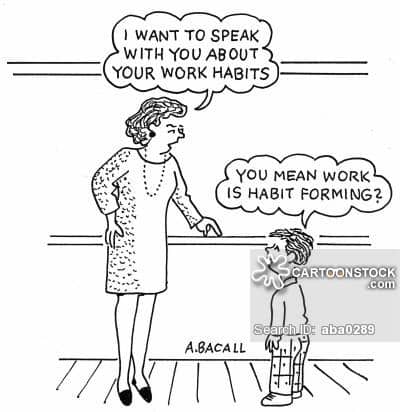[rt_reading_time label=”Reading Time:” postfix=”minutes” postfix_singular=”minute”]
—————- The next find out more meeting for our March programme is on Tuesday 23rd February which is in [cntdwn todate=”30 April 2019 23:59″ timeoff=”0″ showhours=”0″ showmins=”0″ pretext=””] Check myrise.co.uk/briefing-meeting to find out more, see what the meeting involves and, potentially, take that next step to transforming your life and body 🙂 ———————-
How long does it take to form a new habit?
You may have heard 28 days.
Often mentioned as the time to form a new habit for the various months where we’re encouraged to stop certain behaviours.
Stoptober, Dry January, etc.
The app I use on my phone to track my various goals tells me it’s 66 days.
One study I just looked at said between 18 and 254 days.
So, what’s the answer.
Well, it depends, is the answer.
There’s a few things in play here.
It depends on how much you want to do it, how easy it is and so on.
If for some magical reason there was £1,000 cash waiting in my garden between 5.02 and 5.03am everyday I would instantly be in the habit of setting my alarm for 4.50 and getting out there in time.
A bit of pain but a massive reward.
If I got £1 for every time I remembered to pick up a drink with my left hand instead of my right, I might forget a few, but I’d quickly get into it.
Moderate reward but minimal effort.
And it depends on the frequency too.
Getting in the habit of submitting your annual tax return on time can’t be done in 28 days.
Ultimately, something becomes a habit only after a certain number or ‘reps’.
An amount of times it’s successfully done.
And that number will vary person to person, habit to habit.
And we don’t know particularly precisely before we start.
I’ve been asked many times over the years “how long will this take to become a habit?”
And as Matt Goss, his brother and that other one famously sang, “I can’t answer that, I can’t answer that”.
I’d probably only say it once though to be honest.
A second time would be a bit weird.
The good news though is that, on average, each successive ‘rep’ will be a little easier (for many, clicking this link was the big first step that enable successive ones to be easier –> myrise.co.uk/briefing-meeting).
We’ll become more ‘efficient’ at it.
It’s less out of our norm.
It’s not a straight line from hard to easy.
More a wiggly one but generally moving in that direction.
What is a pain in the arse to do now will be a bit easier after we’ve done it 10 times.
A lot easier after 100 reps.
Barely thought about after 1,000.
But the only way to get there is to do the next rep.
Make that next better food choice.
That next workout.
Whatever it may be.
We probably won’t hit it every time.
And I can’t guarantee how long it’ll take to get easier and become a habit.
But I can give you a guaranteed way to it never getting easier or becoming a habit – stopping.
And a guaranteed way to get there eventually – keep going.
Much love,
Jon ’28 Days Later’ Hall and Matt ‘Goss’ Nicholson
